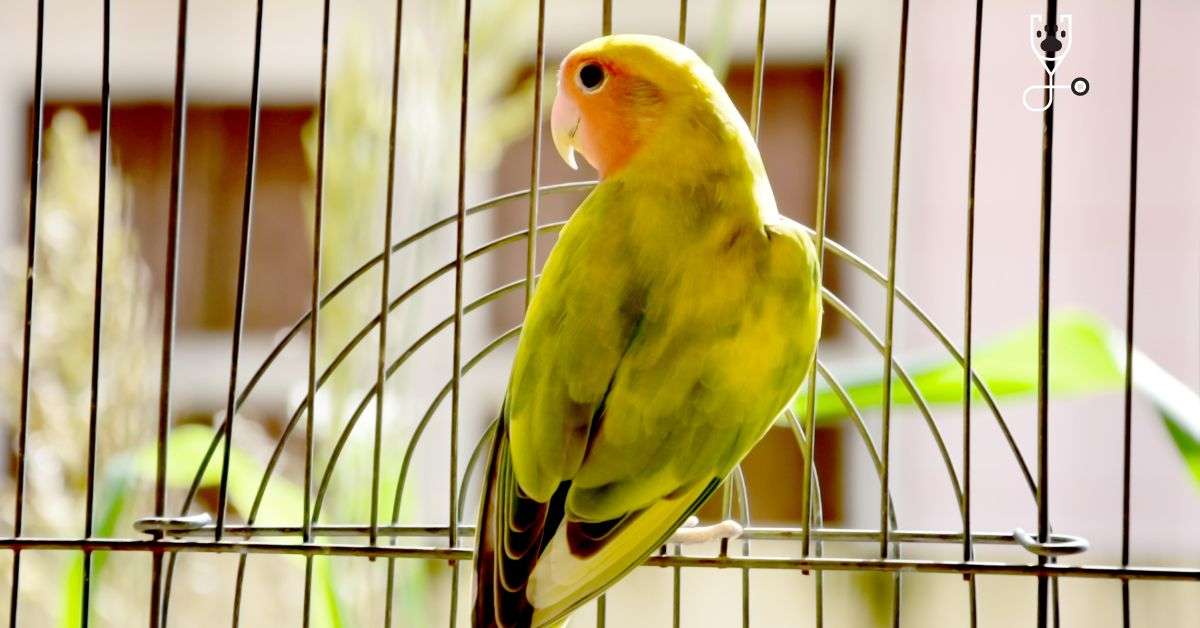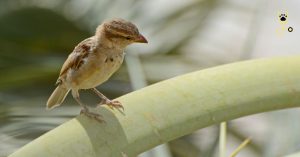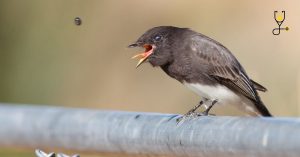It can be tough to gain your lovebird’s trust at first, but with patience and some time, it’s definitely possible. Here are a few things that helped me out when I was working on building a connection with my little lovebird.
Read: How To Make A Budgie Live Longer
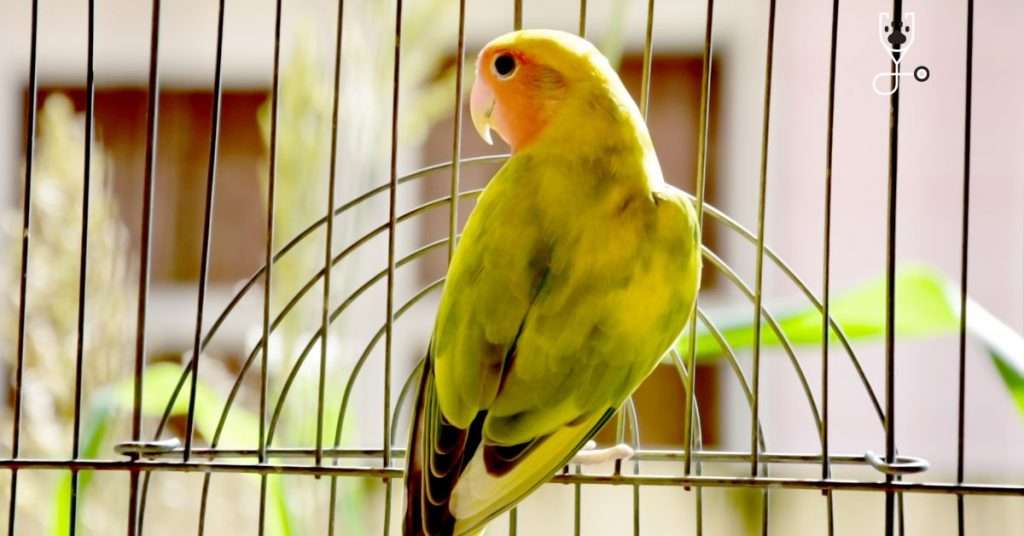
What to Expect When You Bring a New Bird Home
When you first bring your bird home, it is important to anticipate how she will likely behave.
- She will probably be alert and nervous, not fluffy or relaxed.
- She may not eat food for a day.
- She might get startled at the smallest of sounds.
- She might also get nervous around other birds or pets.
By being prepared for these behavior patterns, you can help your bird feel more comfortable in her new home.
Learn More: Bathing Tips For Lovebirds
Where Should I Keep a New Bird?
When you first bring your new bird home, it is important to create a safe and comfortable environment for it.
The best place for your bird’s cage is in a room that is quiet and free from draft Draft outdoor draft distractions, such as traffic noise or loud music.
The cage should also be placed away from direct sunlight and drafts. If you have other pets, it is best to keep the bird cage in a separate room to prevent stress and minimize the risk of disease transmission.
Once you have found the perfect spot for your bird’s cage, you can start to furnish it with toys, perches, and other enrichment items.
By creating a safe and inviting space for your new feathered friend, you can help to ensure a long and happy relationship.
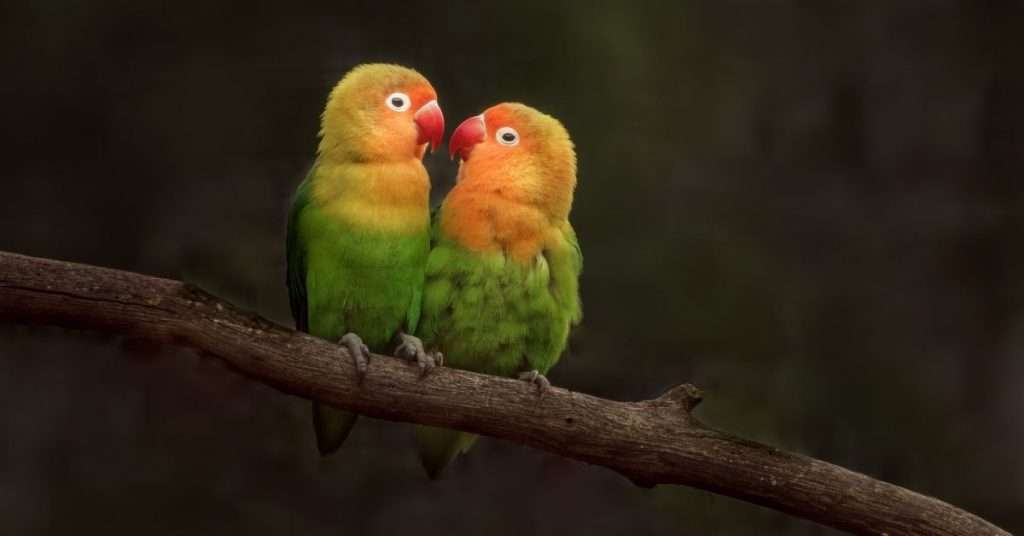
How Do I Handle a New Bird?
First and foremost, make sure that the bird has a comfortable and safe place to stay, such as a cage or aviary. The bird’s cage should be big enough for the bird to move around in, and it should be kept clean. You will also need to provide the bird with food and water bowls, as well as perches or branches for the bird to rest on.
Once you have set up the bird’s living space, you can begin to interact with the bird. Start by offering it food from your hand, and gradually move on to petting and handling the bird. It is important to handle the bird gently and patiently, as birds can be easily frightened. With time and patience, you should be able to build a bond with your new feathered friend.
Read More: The Pet Birds – Ultimate Guide To Be a Responsible Bird Owner.
What Should I Feed a New Bird?
When you first bring your bird home, it is important to offer her a variety of food items to eat.
This will help her explore different tastes and textures and find what she likes best.
Some good foods to offer include:
- cooked rice or pasta
- cooked chicken or turkey (without the skin)
- boiled egg yolks
- cottage cheese
- fruits and vegetables
You should also make sure to provide her with fresh water at all times.
Learn More: How To Care For Sick LoveBirds (Signs And Symptoms 2022)
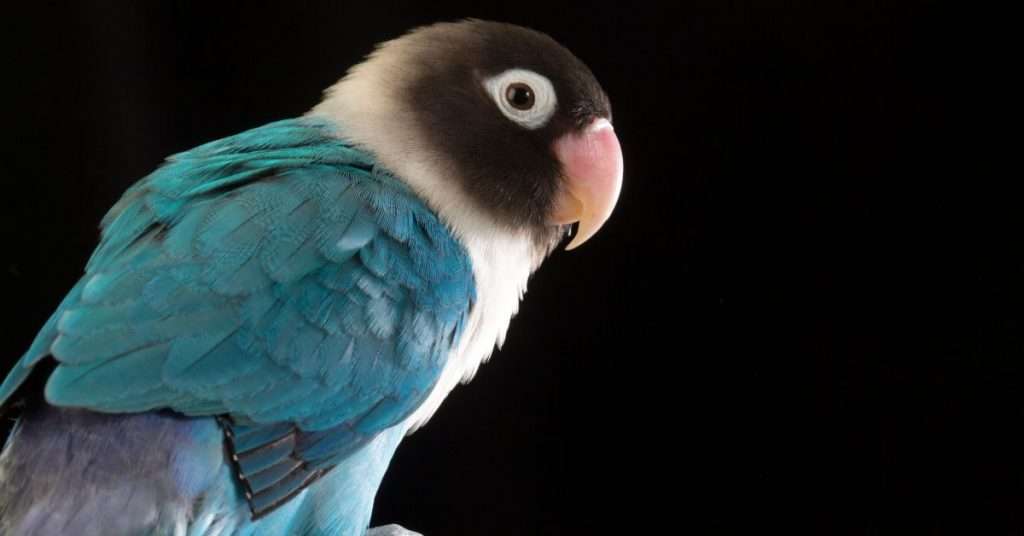
What Should I Do If My Bird Is Nervous?
If your bird is acting nervous or scared, there are a few things you can do to help ease its anxiety.
First, make sure that its cage is in a quiet, safe place where it can feel secure. If possible, provide it with a hiding place inside the cage, such as a nesting box or hut. You should also try to limit the amount of noise and activity around the cage.
When handling your bird, be gentle and avoid sudden movements. Let it approach you on its own terms. If your bird is still feeling nervous, you may want to consult a veterinarian or avian behavior specialist for additional advice. By taking these steps, you can help your bird feel more relaxed and secure in its home.
Do’s and Don’ts When Handling a New Bird
| Do | Don’t |
|---|---|
| Create a safe and comfortable environment for the bird. | Do not put the cage in a drafty area or near direct sunlight. |
| Offer the bird food and water bowls, as well as perches or branches to rest on | Do not handle the bird roughly or make sudden movements |
| Handle the bird gently and patiently | Do not feed the bird chocolate, caffeine, or alcohol, as these can be toxic to birds. |
| Build a bond with your new feathered friend. |
By following these do’s and don’ts, you can help your new bird adjust to its home and avoid any potential health hazards.
With patience and some time, you can definitely build a strong bond with your new lovebird. Just remember to go slow, be gentle, and offer her plenty of food and water. She’ll come around in no time!

